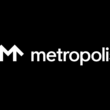Exceptional customer service separates thriving small businesses from those that struggle to survive. Research shows that 89% of customers abandon brands after experiencing poor support, making your ticketing system choice a business-critical decision. This detailed analysis examines the leading customer support platforms designed specifically for small businesses across the United States.
What is a Customer Support Ticketing System?
Customer support ticketing software transforms scattered customer communications from multiple touchpoints (email, telephone, live chat, social platforms) into organized, trackable “tickets” that support teams can monitor, prioritize, and resolve efficiently. Rather than managing customer issues through disorganized email threads and handwritten notes, teams gain access to a unified command center displaying comprehensive customer interaction histories.
Essential advantages for small business operations:
- Eliminates lost customer requests and communication gaps
- Establishes clear accountability through automated response tracking
- Builds comprehensive knowledge repositories from case resolutions
- Enables support team growth without proportional resource expansion
- Delivers actionable business intelligence through detailed analytics
Essential Features Every Small Business Needs
Core System Capabilities
- Omnichannel ticket generation (email integration, contact forms, phone logging, chat)
- Intelligent ticket distribution using business rules and priority settings
- Service level agreement monitoring with automated escalation alerts
- Self-service customer portals for status updates and issue tracking
- Mobile-optimized interfaces for remote and field support operations
Business System Integrations
- Customer relationship management connectivity for complete client visibility
- E-commerce platform synchronization (Shopify, WooCommerce, BigCommerce)
- Team collaboration platform links (Slack, Microsoft Teams)
- Financial system connections for billing disputes and refund processing
- Social media management for brand monitoring and response coordination
Performance Analytics and Insights
- Response velocity measurements and individual team member performance analysis
- Customer feedback collection integrated into ticket resolution workflows
- Support volume forecasting for strategic staffing and resource allocation
- Issue pattern recognition enabling proactive problem prevention
Top 10 Ticketing Systems for Small Businesses (2025 Rankings)
1. Zendesk (Best Overall Solution)
Investment: $19/agent/month (Suite Team package) Ideal for: Expanding businesses requiring comprehensive functionality
Zendesk maintains its position as the industry benchmark for small and medium enterprises. The Suite Team package delivers complete ticketing capabilities, comprehensive knowledge management, integrated chat, and foundational analytics. The platform balances user-friendly design with enterprise-level scalability.
Advantages:
- Massive integration library featuring 1,000+ business applications
- Sophisticated automation and customizable workflow capabilities
- Powerful mobile application supporting distributed teams
- Industry-leading uptime guarantee (99.9% service level agreement)
Limitations:
- Pricing escalates significantly with feature additions and user growth
- Complex customization features require premium subscription tiers
- Steep learning curve for advanced automation configuration
Best suited for: Service organizations, software companies, retail businesses with substantial support requirements
2. Freshdesk (Best Value Proposition)
Investment: No-cost tier available; premium plans begin at $15/agent/month Ideal for: Cost-sensitive startups and compact teams
Freshdesk delivers outstanding value through its robust free tier accommodating up to 10 support agents. Premium subscriptions unlock advanced automation features, time tracking capabilities, and customizable field options at highly competitive rates.
Advantages:
- Comprehensive free plan including core functionality
- Intuitive, contemporary interface requiring minimal user training
- Powerful automation features available across all pricing tiers
- Effective social media platform integration
Limitations:
- Reduced customization flexibility compared to enterprise alternatives
- Analytics and reporting capabilities need enhancement
- Telephone support access restricted to higher-cost plans
Best suited for: New businesses, small online retailers, service providers with fundamental support needs
3. Help Scout (Best for Relationship Building)
Investment: $20/agent/month (Standard package) Ideal for: Organizations emphasizing personal customer connections
Help Scout resembles familiar email interfaces more than conventional ticketing platforms, making it excellent for businesses prioritizing authentic customer relationships. Advanced collision detection technology prevents duplicate agent responses to identical tickets.
Advantages:
- Familiar email-style interface minimizes training requirements
- Outstanding team collaboration tools for internal discussions
- Robust knowledge base system with search engine optimization
- Integrated customer satisfaction measurement tools
Limitations:
- Restricted telephone support integration options
- Fewer third-party connections compared to major competitors
- Live chat functionality absent from basic subscription plans
Best suited for: Professional service firms, consulting practices, small business-to-business organizations
4. HubSpot Service Hub (Best CRM Connectivity)
Investment: Free option available; paid subscriptions start at $45/month (2 agents) Ideal for: Companies using HubSpot ecosystem or requiring deep CRM integration
HubSpot Service Hub connects seamlessly with HubSpot’s customer relationship management platform, delivering complete customer context for every support interaction. The complimentary plan provides basic ticketing and knowledge management capabilities.
Advantages:
- Built-in CRM integration offering complete customer interaction history
- Advanced automation and sophisticated workflow management
- Comprehensive reporting and business intelligence capabilities
- Excellent scalability supporting business expansion
Limitations:
- Can overwhelm organizations with basic support requirements
- Per-agent costs increase substantially during team growth
- Advanced features demand technical configuration expertise
Best suited for: Sales-driven organizations, growing enterprises, teams already utilizing HubSpot products
5. Zoho Desk (Best for Zoho Users)
Investment: $14/agent/month (Standard package) Ideal for: Small businesses utilizing additional Zoho applications
Zoho Desk integrates seamlessly throughout the extensive Zoho business ecosystem (CRM, accounting, project management), creating ideal conditions for organizations already committed to Zoho’s integrated software suite.
Advantages:
- Outstanding value proposition with comprehensive feature sets
- Advanced automation including artificial intelligence-powered recommendations
- Complete multi-channel support encompassing social media platforms
- Well-designed mobile application functionality
Limitations:
- Interface complexity can overwhelm new users
- Integration options limited primarily to Zoho ecosystem
- Premium features require higher-tier subscription plans
Best suited for: Small businesses using Zoho CRM, service organizations, teams requiring multi-channel support capabilities
6. Intercom (Best for Customer Engagement)
Investment: $39/month (Start package, accommodating 2 seats) Ideal for: Organizations prioritizing proactive customer engagement strategies
Intercom merges traditional ticketing with live chat capabilities, knowledge management, and customer messaging systems, facilitating proactive customer engagement strategies rather than purely reactive support approaches.
Advantages:
- Exceptional live chat and real-time messaging capabilities
- Sophisticated automation for lead qualification and inquiry routing
- Attractive, modern user interface design
- Strong integration support for popular business applications
Limitations:
- Higher cost structure compared to basic ticketing alternatives
- Excessive complexity for straightforward support requirements
- Automated resolution features require extensive training and configuration
Best suited for: Software companies, e-commerce platforms, organizations with complex customer engagement cycles
7. Kayako (Best for Complete Customer Visibility)
Investment: $15/agent/month (Grow package) Ideal for: Small teams requiring comprehensive customer communication tracking
Kayako delivers unified customer perspectives by consolidating communications across all channels into single conversation threads, eliminating confusion from fragmented interactions across multiple platforms.
Advantages:
- Consolidated conversation tracking across all communication channels
- Excellent real-time team collaboration features
- Effective automation and service level agreement management
- Competitive pricing for delivered functionality
Limitations:
- Smaller user community compared to industry leaders
- Limited third-party application marketplace
- Occasional performance issues reported by some users
Best suited for: Compact support teams, businesses serving customers across multiple communication channels
8. LiveAgent (Best Multi-Channel Coverage)
Investment: $15/agent/month (Ticket package) Ideal for: Organizations requiring comprehensive communication channel management
LiveAgent excels in multi-channel support delivery, combining ticketing, live chat, integrated call center, and social media management within a unified platform environment.
Advantages:
- Complete multi-channel support including Voice over IP capabilities
- Integrated call center functionality
- Robust automation and pre-written response templates
- Excellent feature-to-cost ratio
Limitations:
- User interface appears outdated compared to contemporary alternatives
- Increased learning complexity due to extensive feature sets
- Limited integration options with external business systems
Best suited for: Small businesses requiring telephone support, multi-channel retail operations, and comprehensive service organizations.
9. ServiceNow (Best for Rapid Growth)
Investment: Custom pricing structures (typically $100+ per agent/month) Ideal for: Small businesses planning substantial expansion
ServiceNow provides enterprise-level functionality capable of supporting ambitious small business growth, though implementation requires significant financial commitment and technical expertise.
Advantages:
- Exceptionally powerful workflow and automation capabilities
- Scales effectively to enterprise-level requirements
- Comprehensive analytics and detailed reporting features
- Highly customizable platform architecture
Limitations:
- Substantial initial investment and implementation complexity
- Requires dedicated technical expertise for setup and ongoing maintenance
- Excessive functionality for most small business applications
Best suited for: Fast-growing technology companies, organizations with complex service delivery requirements
10. Groove (Best for Simplicity)
Investment: $16/agent/month (Simple package) Ideal for: Small teams seeking straightforward solutions
Groove emphasizes simplicity and ease of use, delivering essential ticketing capabilities without overwhelming small teams with unnecessary complexity or advanced features.
Advantages:
- Extremely straightforward setup and daily operation
- Email-based workflows familiar to all team members
- Solid knowledge base management capabilities
- Reasonable pricing structure
Limitations:
- Limited advanced automation and workflow features
- Fewer integration options compared to comprehensive competitors
- Basic analytics and reporting functionality
Best suited for: Very small teams, organizations new to formal customer support processes
Industry-Specific Recommendations
E-commerce and Online Retail
Primary recommendation: Zendesk or Freshdesk with Shopify/WooCommerce connectivity
- Advanced order lookup and management capabilities
- Automated return and refund processing workflows
- Intelligent inventory-related inquiry routing systems
- Comprehensive social media brand monitoring
Software as a Service Companies
Primary recommendation: Intercom or HubSpot Service Hub
- Embedded application messaging and support widgets
- User behavior analytics integration
- Systematic feature request collection and management
- Automated customer onboarding support sequences
Professional Service Organizations
Primary recommendation: Help Scout or Zoho Desk
- Client project management integration
- Billing inquiry handling and resolution
- Appointment scheduling coordination systems
- Secure document sharing and collaboration
Healthcare and Medical Practices
Primary recommendation: Zendesk or ServiceNow (with HIPAA compliance)
- HIPAA-compliant communication protocols
- Integrated appointment scheduling systems
- Insurance verification and processing workflows
- Secure patient document management
Cost Analysis: Hidden Expenses to Consider
Beyond Basic Monthly Subscription Fees
- Implementation and migration expenses: Data transfer, system configuration, staff training
- Custom integration development: Specialized connections to existing business systems
- Supplementary user licensing: Administrative users, temporary seasonal staff
- Storage capacity overages: Ticket attachments, knowledge base content, archived data
- Telephone support enhancements: VoIP system plans, international calling capabilities
Comprehensive Cost of Ownership Analysis
For a 5-person support team over 24 months:
Economy Option (Freshdesk):
- Monthly subscription: $75/month × 24 months = $1,800
- Setup and training investment: $500
- Basic integrations: $300
- Total investment: $2,600
Premium Option (Zendesk):
- Monthly subscription: $95/month × 24 months = $2,280
- Setup and training investment: $800
- Advanced integrations: $600
- Additional feature costs: $480
- Total investment: $4,160
Implementation Best Practices
Pre-Implementation Strategic Planning
- Comprehensive current process audit identifying existing pain points and operational requirements
- Success metric definition including response time objectives and customer satisfaction benchmarks
- Customer journey mapping ensuring complete communication channel coverage
- Existing tool inventory for comprehensive integration planning
- Team training schedule development minimizing operational disruption
Strategic Migration Approach
- Pilot group initiation using 2-3 experienced agents for comprehensive testing
- Gradual historical data import preventing system performance degradation
- Automation rule configuration based on established workflow patterns
- Customer portal preparation before public announcement
- Parallel system operation planning during transition period
Team Training Methodology
- Role-specific training programs emphasizing relevant functionality
- Internal documentation creation for standard operating procedures
- Escalation protocol establishment for complex technical challenges
- Regular progress monitoring during initial implementation month
- Continuous education planning for new features and evolving best practices
Security and Compliance Considerations
Data Protection Regulatory Requirements
- GDPR compliance protocols for international customer interactions
- CCPA compliance measures for California resident privacy protection
- Industry-specific regulations (HIPAA for healthcare, SOX for financial services)
- Data encryption standards for information in transit and at rest
- Regular security assessment and penetration testing protocols
Access Control Implementation Standards
- Role-based permission systems limiting agent access to appropriate tickets
- Multi-factor authentication requirements for all user accounts
- Regular access privilege reviews removing unnecessary system permissions
- Comprehensive audit logging for all system modifications and sensitive data access
- Secure API management for third-party integration security
Measuring Success: Key Performance Indicators
Customer-Focused Performance Metrics
- First Response Time: Industry benchmark targets under 24 hours
- Resolution Time: Complexity-adjusted tracking of average resolution periods
- Customer Satisfaction Score (CSAT): Target achievement of 90%+ satisfaction rates
- Single-Touch Resolution Rate: Objective of 70%+ first-contact issue resolution
Internal Operational Efficiency Metrics
- Agent Productivity: Daily ticket resolution rates per team member
- Escalation Rate: Percentage of tickets requiring supervisory intervention
- Knowledge Base Utilization: Self-service problem resolution effectiveness
- Cost per Ticket: Total support operation costs divided by ticket volume
Business Impact Assessment Measurements
- Customer Retention Rate: Correlation analysis between support quality and customer renewals
- Upselling Opportunities: Support-generated sales lead referrals
- Brand Sentiment Analysis: Social media monitoring and review assessment
- Revenue Protection: Quantified value of retained customers through superior support
Future-Proofing Your Decision
Scalability Planning Considerations
- Agent capacity limits: System capability for team expansion
- Ticket volume handling: Performance maintenance at 10x current volumes
- Feature expansion availability: Advanced capabilities for business growth
- Geographic expansion support: Platform capabilities for international operations
Technology Evolution Preparedness
- AI and automation development: Vendor investment in intelligent automation technologies
- Integration ecosystem expansion: Regular addition of new business system connections
- Mobile capability advancement: Platform adaptation to evolving work patterns
- API development support: Custom integration capabilities for future requirements
Common Implementation Mistakes to Avoid
Technical Implementation Errors
- Initial over-customization: Beginning with simple configurations and adding complexity gradually
- Mobile experience neglect: Ensuring effective agent functionality across mobile devices
- Insufficient testing protocols: Comprehensive workflow testing before full deployment
- Integration planning deficiencies: Mapping data flow between systems before connectivity
Process Management Problems
- Team buy-in oversight: Including agents in selection processes for improved adoption
- Training investment inadequacy: Comprehensive training for sustainable long-term success
- Change management neglect: Proactive benefit communication and concern addressing
- Deployment timeline compression: Adequate time allocation for testing and gradual implementation
Making Your Final Decision
Comprehensive Evaluation Framework
- Must-have feature identification based on current operational pain points
- Future capability assessment for anticipated growth requirements
- Total cost of ownership calculation for 2-3 year planning periods
- Vendor demonstration requests from top 3 candidate solutions
- Pilot program execution using actual tickets and team members
Critical Vendor Discussion Points
- What comprehensive onboarding support is included in your service?
- How do you manage data migration from our existing system?
- What is your typical implementation timeline for organizations like ours?
- Can you provide references from similar-sized businesses in our industry?
- What is your product development roadmap for new features and improvements?
Selecting the optimal ticketing system transforms customer support from a business expense into a strategic competitive advantage. Invest time in thorough evaluation, engage your team in the decision-making process, and select a solution capable of growing alongside your business.
Essential principle: The most effective ticketing system is one your team embraces and uses consistently. A straightforward solution adopted enthusiastically will consistently outperform a feature-rich platform that remains underutilized due to complexity or poor user experience.








